





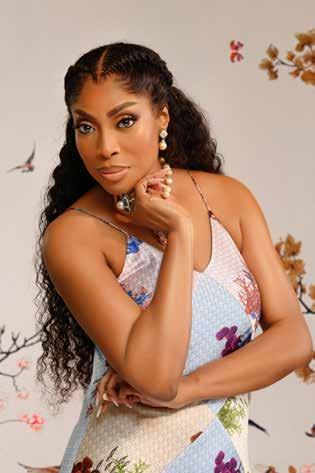

CELEBRATING THE LIFE AND LEGACY OF MRS LILIAN JEREMI
In a touching and heartfelt gathering, the Jeremi family, led by Sholaye Jeremi, had family and friends come together in Sapele, Delta State, to honour and bid farewell to their beloved mother, Mrs Lilian Jeremi. The two-day event paid tribute to a life well-lived and a legacy that will undoubtedly endure.
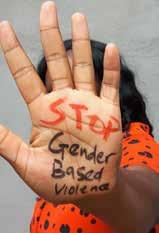



BABS-KUFEJI 08111847086
Just last week, we were immersed in a conversation about plagiarism in fashion, and now the plot has thickened with an even more complicated issue—Intellectual Property Rights in Fashion. It was one of the hot topics everyone on social media was buzzing about this week. For those who have been following the drama, you’re probably familiar with the uproar between renowned fashion house, House of Deola, and fashion influencer Hafsah Mohammed.
Hafsah took to social media to vent her frustration after commissioning a custom wedding dress in 2022, only to discover what she claims is an identical version of her design worn by another bride this week. If you haven’t caught up yet, highly recommend reading “Custom Creations: Should Designers Be Allowed to Recreate Your Unique Look?” It’s a must-read for anyone trying to keep up with the fast-evolving landscape of fashion ethics.
This situation is a tricky one, no doubt. On one hand, $5000 for a wedding dress in 2022—and even now—is no small sum. When someone is shelling out that much, they expect something truly special and unique. For many brides, a wedding dress is more than just fabric and thread; it’s an extension of who they are and a representation of their big day. The emotional weight tied to that piece of clothing goes far beyond just the financials, especially when a client believes they’re purchasing exclusivity.
At the heart of this issue is a conversation about what clients expect versus what designers actually deliver. Many might sympathise with Hafsah’s emotional response, but as with most things, there are two sides to this story. While the client may feel justified in demanding exclusivity, designers often juggle the fine line between meeting clients’ wishes and maintaining their artistic autonomy.
The Solution? Designers need to be transparent about their policies regarding custom designs and exclusivity. Clients, on the other hand, have a responsibility to ask the right questions and clarify what they’re getting into before making significant purchases. Are you paying for a one-off, custom-made masterpiece? Or are you buying a personalised version of a designer’s existing body of work? Knowing the answer to these questions upfront can prevent a lot of heartache and misunderstandings later on. Also, because we are In an era where influencers and public figures shape public opinion more than ever, designers need to approach client expectations with greater caution. The court of public opinion is relentless, and one misstep can quickly become a viral PR disaster.
Moving on to another critical conversation that’s been occupying our minds this week—gender-based violence. The article “When Will Women Be Safe” shines a harsh spotlight on the recent tragedies involving Rebecca Cheptegei, Christianah Idowu, and Mercy Vangervihi. These women’s stories are heartbreaking, with two of them losing their lives in the brutal attacks they endured. Mercy, the sole survivor, remains in critical condition, fighting for her life. It’s difficult to comprehend the rise in these heinous acts—especially when they are often perpetrated by individuals women know and trust. It’s maddening and, frankly, terrifying. The violence against women has reached a crescendo, and it’s time to move beyond the lip service. We need collective action—real, tangible efforts to address this madness. Enough of the hashtags, the trending topics, and the fleeting outrage. This crisis requires sustained intervention. To the men reading this, now is the time to speak up, not just when it’s convenient, but when it’s necessary. True strength is not in staying silent but in standing up to your friends, your colleagues, or anyone who demeans, abuses, or rules over women. Let’s redefine masculinity by holding each other accountable. On a lighter note, how’s your weekend going? The year is winding down faster than we expected, and don’t know about you, but I’m grateful for every single day we’ve made it through. If you’re reading this, take a moment to be thankful too. Life may throw its curveballs, but we’re still here, still pushing, still making strides. Here’s
and a

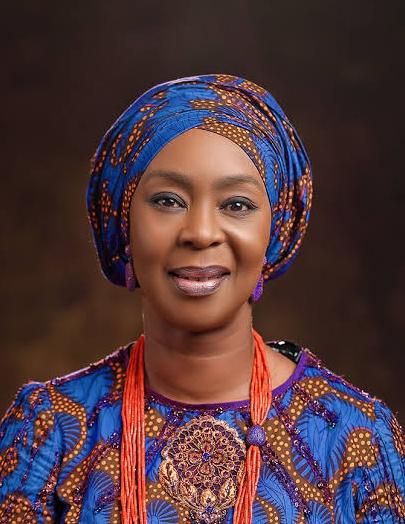
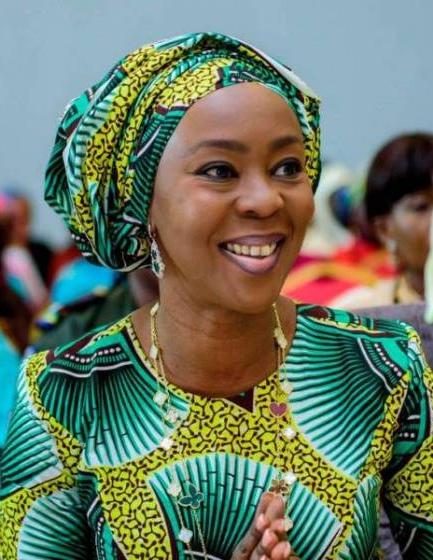
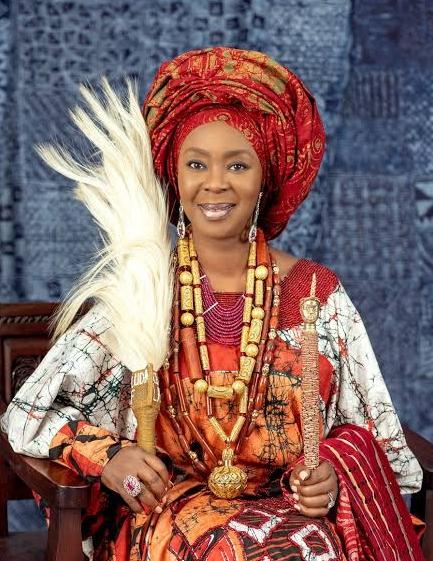
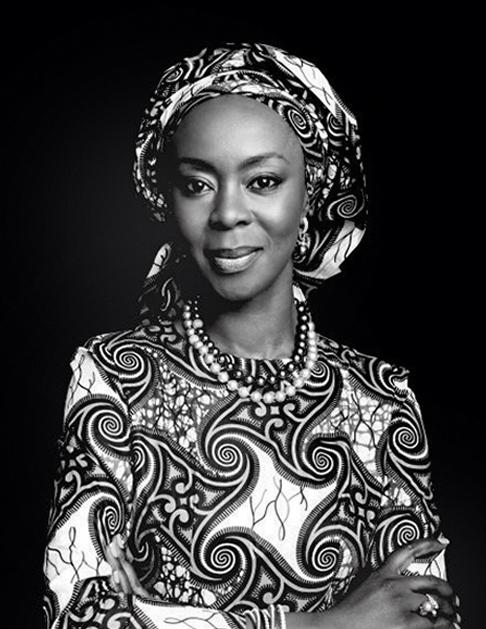

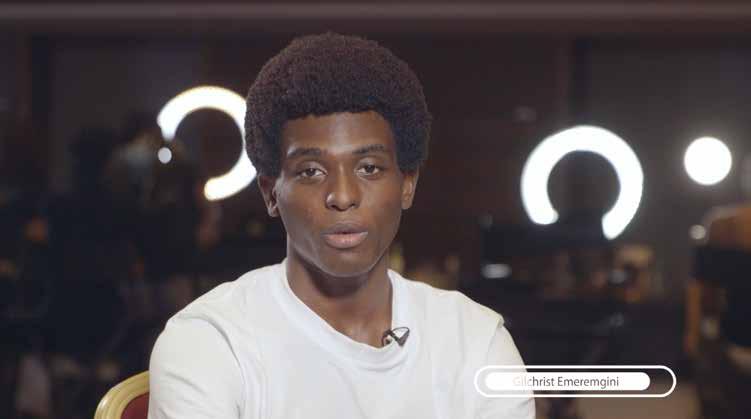
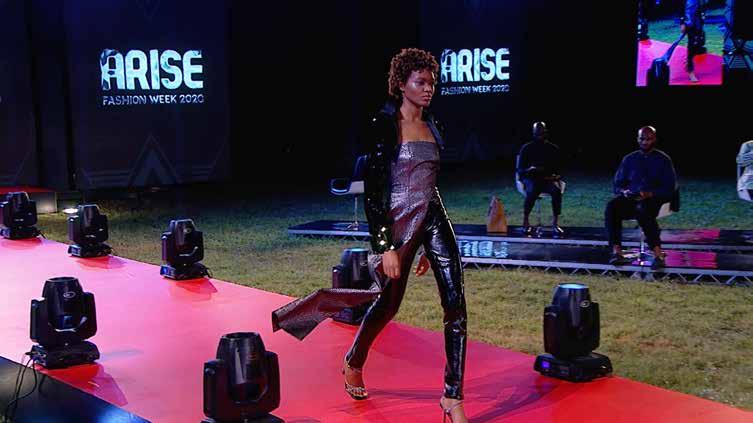

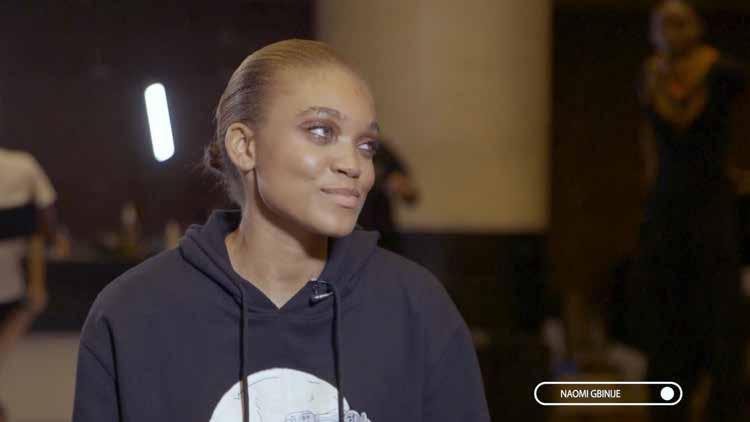

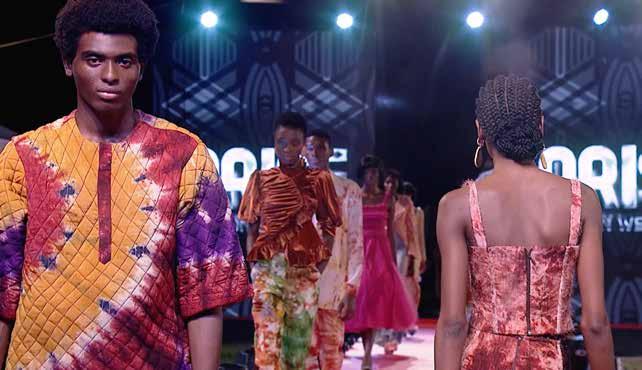


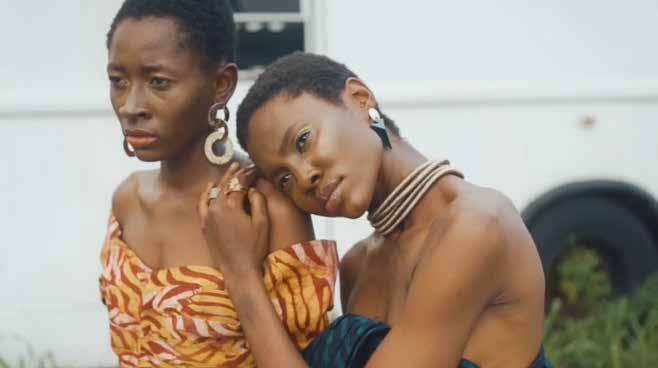
In a touching and heartfelt gathering, the Jeremi family, led by Sholaye Jeremi, had family and friends come together in Sapele, Delta State, to honour and bid farewell to their beloved mother, Mrs Lilian Jeremi. The two-day event paid tribute to a life well-lived and a legacy that will undoubtedly endure.
The event, which started with a service of songs, spilt over to the following day with a memorial service, where tributes to her continued at the First Baptist Church. It was a dignified affair, filled with moving tributes, soul-stirring hymns, and fervent prayers, encapsulating the deep respect and affection harboured for her.
The culmination of the event was the reception at the Athletic Club in GRA Sapele, where the atmosphere shifted to one of reflection and celebration.
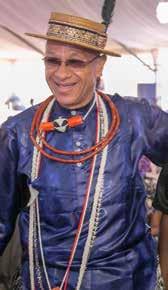


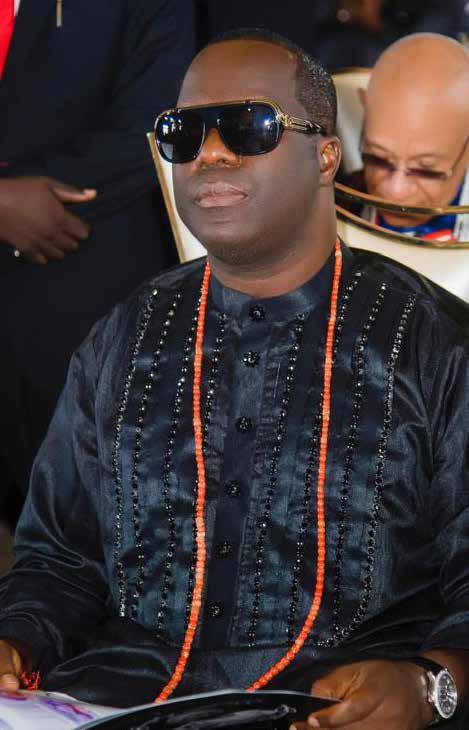




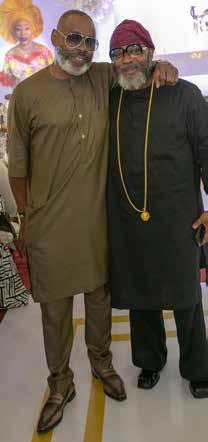


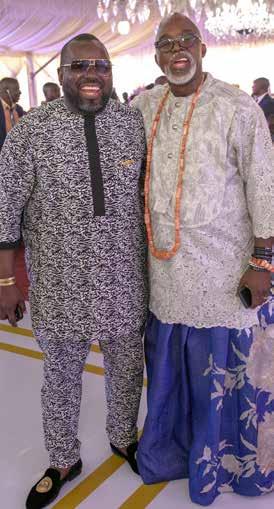
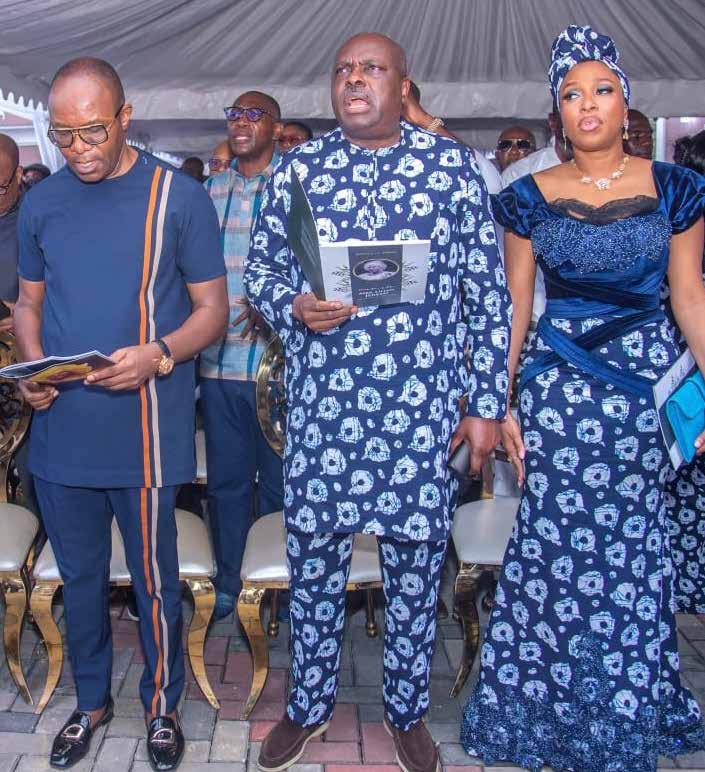


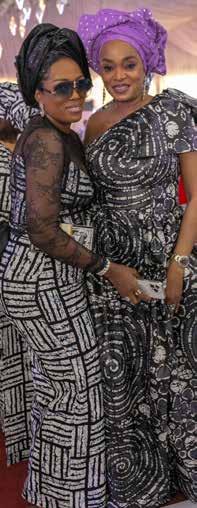



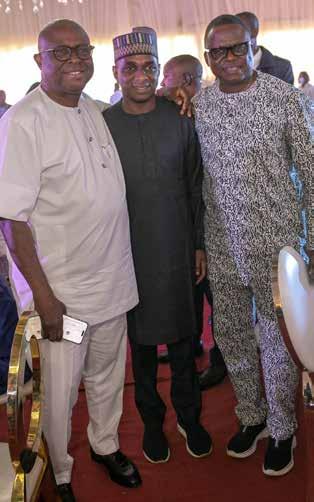



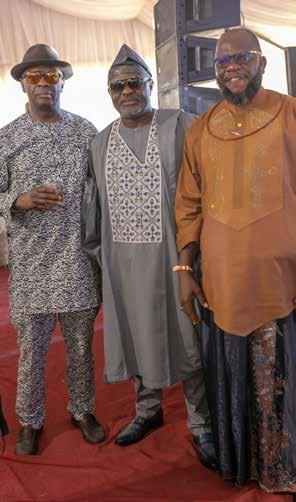



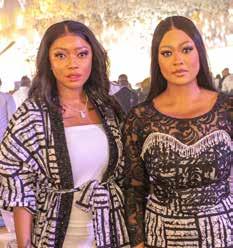
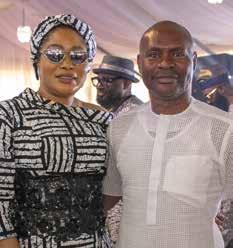
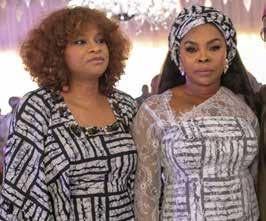

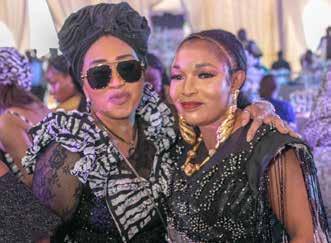
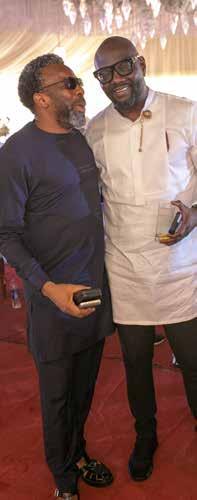
As part of her grand 60th birthday celebrations, Mo Abudu, in partnership with the American Embassy, unveiled her latest visionary project—Lagos Canvas—at a star-studded event that brought together the crème de la crème of Lagos’ arts and culture scene. This landmark occasion adds to the festivities and marks a pivotal moment in Mo’s remarkable 20-year journey of amplifying Nigerian culture on the global stage.
Lagos Canvas is set to become the next big thing in showcasing the vibrancy and ingenuity bubbling within Lagos. It offers a world-class platform for both seasoned and emerging Nigerian creatives to shine.



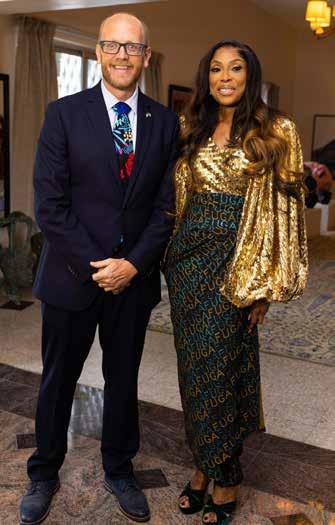







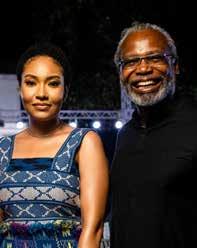




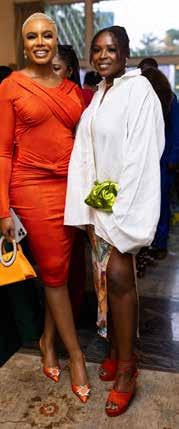

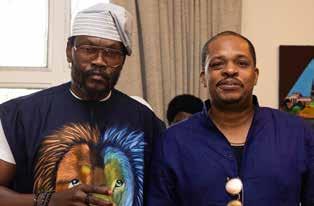


By Dr. Kemi DaSilva-Ibru
Dear Reader, Welcome to the WARIF Survivor Stories Series, a monthly feature where stories of survivors of rape and sexual violence are shared to motivate and encourage survivors to speak their truth without the fear of judgment or stigmatisation and to educate the public on the sheer magnitude of this problem in our society. The Women at Risk International Foundation (WARIF) is a non-profit organisation set up in response to the extremely high incidence of rape, sexual violence, and human trafficking of young girls and women in our society. WARIF is tackling this issue through a holistic approach that covers health, education, and community service initiatives. WARIF aids survivors of rape and sexual violence through the WARIF Centre - a haven where trained professionals are present full time, six days a week, including public holidays, to offer immediate medical care, forensic medical examinations, psycho-social counselling, and welfare services, which include shelter, legal aid, and vocational skills training. These services are provided FREE of charge to any survivor who walks into the centre.
My name is Iywanger, meaning “Truth pays”, in the Tiv ethnic group in Nigeria. I am a 23-year-old lady, and this is my story.
I live with my parents and nanny; I am an only child, and we live in Lagos. I went downstairs to charge my phone at a general point after a power outage; we usually have a place in my block of apartments where anyone can take their appliances to charge at a general point.
I met one of the young guys living in another apartment. have seen him a couple of times while going out with my parents, and he suggested we play a Game in which the winner dares the loser to do anything of their choice. He chose a game on his phone, and he won the game. He asked to touch any part of my body. I refused, but he reminded the rules of the game, and he asked me to follow him. I did not know what to do, so he took me to his apartment. Upon entering, he locked the door while I was wondering why he was locking the door, then he pushed me on the sofa, and he did not stop at touching me; instead, he pulled off my dress. When tried shouting for help, he used his hands to cover my mouth and then raped me by inserting his penis into my vagina.
I cried in pain because he deflowered me, and then he showed me afterwards a video he recorded while molesting me sexually. was angry that he made the video without my consent, and then he threatened to post it to social media and all my contacts, including my parents.

depressed and would have attempted suicide, but for the love my parents showered, I was sure they might not survive my sudden demise and would leave the rest of their lives in sorrow.
On this fateful day, my father returned home. He found it difficult to ask my mom if she made any withdrawal from his card since she had never done that; they would always seek each other’s permission if any emergency needs were to be met. My dad always gave my mom her monthly allowances and made sure my mother, who had a good job, did not lack in any way except he could not afford it. Since it was his card that was used and we had our nanny who had been living with us since childhood and myself, that made my dad suspicious and then unknown to me, he began monitoring my phone and movement, but I was always cautious. So it was quite difficult for my dad to find anything.
My perpetrator sent a message overnight to tell me to come over to his apartment as usual, and unknown to me, my dad had sneaked in to check my phone; he saw the message and forwarded it to his phone. I left for his house after asking my nanny for permission to stroll around the vicinity, which she granted. I left for the perpetrator’s apartment. I did not know how my dad was in the neighbourhood monitoring me, and he trailed me to the perpetrator’s apartment. Unfortunately, the perpetrator forgot to lock the door. My dad came in suddenly, as he was about to molest me, and he hit him from behind. He fell on the floor. My dad immediately called on the apartment security, and they held him down until the police arrived. The perpetrator was arrested immediately, and the police referred us to the WARIF Centre.

I began pleading with him to delete it then he requested that give a huge amount of money to delete it. I told him had just finished high school and did not have that kind of money. The only money I had was the savings my parents had opened for me in childhood and handed the account over to me when turned Eighteen, he asked me to send the money to him, which did, and then I took the phone and deleted the sex video and left his house.
Unknown to me, he had sent it to his iCloud, and I only had the temporary file. He called later to say that I was only a naïve girl, and he was not stupid enough to allow me to delete the original file Since that day, he began extorting me and having sexual intercourse with me when he so desired, and became his sex slave. I hated myself, lost my appetite, and became lean. My parents noticed it and kept asking what the issues were, but I refused to tell them because of the threat to life by the perpetrator. At one point, had to monitor my dad, get his ATM pin and withdraw my dad’s money to pay the perpetrator so that he would not send the sex video. I became
At the CENTRE, I received medical assessment, treatment, and psycho-social counselling for free. The staff at WARIF Centre are very professional and devoted to the discharge of their duties. was attended to medically, and I also accessed psycho-social counselling for free, and this helped to begin my healing journey from trauma. My counselling sessions with the counsellor at WARIF Centre are life-changing and worthwhile. was able to heal emotionally and psychologically, and the coping mechanisms helped me deal with my emotions. I can confidently say am in a safe space of hope, healing, and peace. I also joined the group therapy session, where developed a sense of belonging, which helped build my selfconcept and esteem. The perpetrator was charged in court and convicted for crimes committed against me. It has been two years, and my life has had a new meaning. gained admission to the University to study Computer Engineering, and I, rounding up my second year with an excellent G.P. I, also look forward to becoming an advocate for the sexually violated in society. have experienced a total transformation in every area of my life, and I am grateful to WARIF.
I appreciate the Management and staff of WARIF Centre for restoring my lost hope and joy.
*Real name of the survivor changed for confidentiality
Dear survivor, please know that you are not alone and it is not your fault. Help is available.
If you have been raped or you know someone who has, please visit us at:
The WARIF Centre 6, Turton Street, off Thorburn Avenue, Sabo, Yaba or call our 24hour confidential helpline on 0800-9210-0009 For questions or more information please contact: info@warifng. org
The recent tragedies involving Rebecca Cheptegei, Christianah Idowu, and Mercy Vangervihi have once again thrust into the spotlight the harrowing and pervasive issue of violence against women and girls. These cases are not isolated incidents but rather emblematic of a larger, systemic crisis that affects countless individuals worldwide.
Rebecca Cheptegei, a celebrated Ugandan Olympic athlete, was the victim of a horrific act of domestic violence. Her partner, in a moment of rage over a dispute, set her on fire, leading to her untimely death. This tragic event not only robbed the world of a talented athlete but also highlighted the extreme dangers women face in their own homes. Similarly, Christianah Idowu’s abduction and subsequent murder involved a chilling betrayal when her own WhatsApp account was manipulated to extort her family. Mercy Vangervihi, a 14-year-old girl from Ebonyi State, Nigeria, was brutally attacked and raped in her own home by a 15-year-old boy. Her home; this is supposed to be her safe haven. If a woman is not safe in her home, where then can she be safe?
A Disturbing Pattern
The violence faced by these women underscores a disturbing pattern: women are frequently attacked by people they know or trust. According to the World Health Organization, approximately 30% of women globally experience physical or sexual violence in their lifetime. Alarmingly, in many cases, the perpetrators are intimate partners or acquaintances rather than strangers. This statistic highlights a grim reality: violence against women is not a random occurrence but often stems from relationships that should provide safety and support.
It is crucial to understand that the responsibility for violence lies solely with the perpetrators; Victims of violence are NEVER to blame. We often leave these victims of Gender Based Violence to navigate a system that fails to adequately protect them. This societal tendency to overlook or minimise violence against women must change. Perpetrators need to be held even more accountable through rigorous legal frameworks and societal condemnation. The focus must be on changing attitudes and behaviours that perpetuate violence rather than placing undue scrutiny on the victims.
The systemic nature of violence against women means that it is not merely an issue of individual bad actors but a reflection of broader societal failures. Cultural norms, gender inequality, and insufficient legal protections all contribute to an environment where violence against women can flourish. Addressing this issue requires a multifaceted approach that includes legal reform, education, and cultural change. Legal reforms are essential to ensuring that perpetrators are held accountable. Laws must be stringent and effectively enforced, and legal systems
must be accessible and supportive of victims.
Education plays another critical role in changing societal attitudes toward violence. Programs that promote gender equality and respect can help to shift cultural norms and reduce the incidence of violence. Public awareness campaigns can shed light on the issue, while community programs can offer support and education. Additionally, support systems for survivors must be robust, providing immediate assistance and long-term support to help them rebuild their lives.
Our roles definitely go beyond typing “justice for xxxxxx” on our social media pages. We need to protect the women, PERIOD. To make meaningful progress towards ensuring women’s safety, there must be a collective effort from you, me, our communities, and the governments. Governments must prioritise the safety of women by enacting and enforcing strong legal protections, funding support services, and promoting policies that address the root causes of violence.
The tragic incidents of Rebecca Cheptegei, Christianah Idowu, and Mercy Vangervihi are sobering reminders of the urgent need for all of us to take action. To safeguard the rights and safety of women, we must recognise that violence against women is a systemic issue that demands a comprehensive response. Only through collective action and a commitment to change can we hope to create a world where women are truly safe and free from violence.
Our thoughts and prayers are with the families of the deceased woman and with Mercy who lies in a critical state at the hospital. #JusticeForRebecca #JusticeForChristianah #JusticeForMercy
By Ayo Lawal
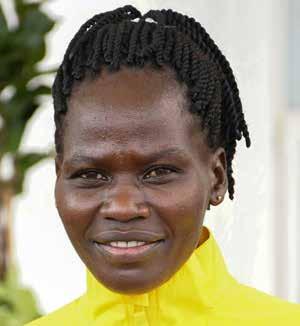

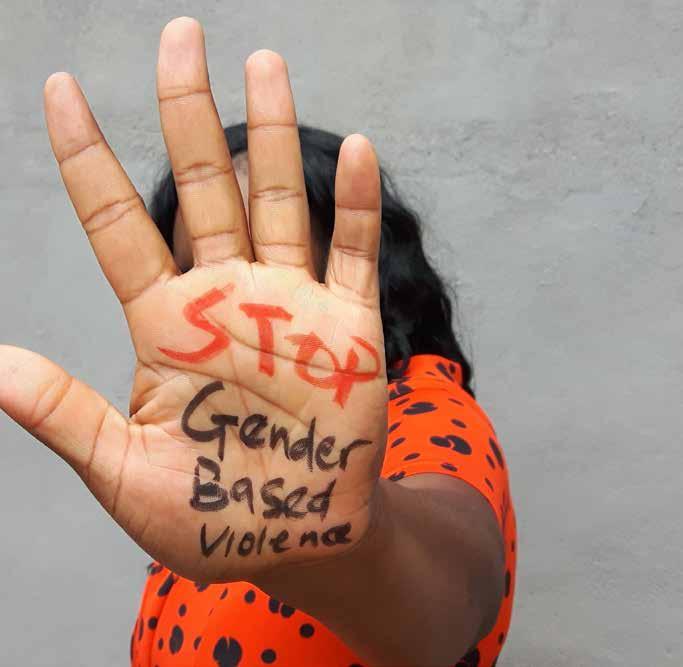
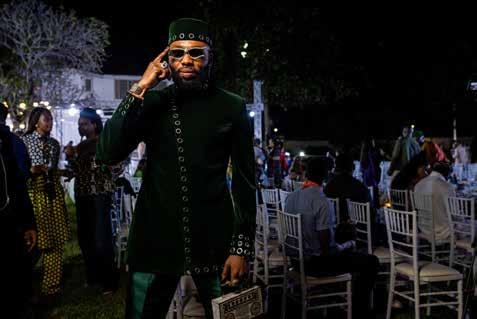
With new faces popping up on social media every day, staying relevant is a challenge. Gone are the days when a few stylish photos could ensure steady growth and engagement. Today, with a saturated market, the competition is fierce, and it takes more than just good outfits to stay at the top of your game. Anyone with a wardrobe and a smartphone can join the influencer world. But how do you stay at the top when everyone wants a slice of the pie? Whether you’re an established influencer or just breaking into the scene, these practical tips will help you stand out and build a lasting brand in a crowded space.
1. Develop a Signature Style – and Own It
While it’s tempting to follow every fashion trend, the influencers who remain relevant have something in common: a signature look. Think about it— what are you known for? Is it your love for bold prints, minimalist vibes, or edgy streetwear flair?
Find what resonates with your audience and double down on it. Authenticity is key here.
2. Diversify Your Content
Here’s the thing: fashion is more than just clothing. It’s a lifestyle, culture, and, most importantly, storytelling. Share your morning routine, a day in the life, or how you mix high fashion with thrift store finds.
Vary your content to keep people engaged. Go beyond the usual “outfit of the day” posts and experiment with styling videos, fashion hauls, tutorials, and behind-the-scenes peeks. Let people in on your process, your thoughts, and your quirks.
3. Master the Art of Engagement
Staying relevant isn’t just about putting out content but building a community. Talk to your followers, reply to their comments, and ask them questions. Social media is a two-way street; people want to feel seen and heard. Instagram’s algorithm (and other platforms) rewards engagement, so if you want to stay relevant, don’t just focus on likes—focus on conversations. Hosting live Q&As, responding to DMs, or asking your fol-
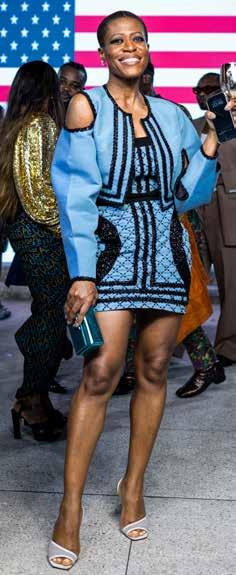
lowers for styling advice are small but powerful ways to build lasting connections.
4. Collaborate, Don’t Compete

Let’s be real: the fashion industry can feel competitive, but one of the smartest ways to stay relevant is to collaborate with other influencers and brands. Collaboration is key in this saturated market because it exposes you to new audiences and provides a fresh take on content. Partner with influencers whose style complements yours or join forces with emerging brands that align with your values. By working together, you create cross-promotional opportunities that can help both parties grow. Plus, it shows that you’re confident in your craft and open to creating a collaborative, positive space in an industry that’s often perceived as cutthroat.
5. Evolve with Your Audience
One of the biggest mistakes influencers make is assuming their audience will always stay the same. As you grow, your audience will, too, and it’s essential to evolve with them. The teenage followers you had five years ago may now be working professionals, so adjusting your content accordingly is important.
Stay attuned to what your followers want. Are they asking for budget-friendly outfits? Tips for styling workwear? Or maybe they’re more interested in eco-conscious fashion? Don’t be afraid to ask your audience directly what they want to see.
6. Invest in Your Personal Brand
To stay relevant, you need to treat your influence like a business—because it is. Whether it’s investing in a better camera, taking a content
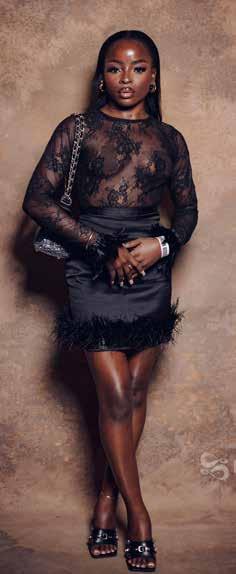
creation course, or hiring a stylist to refine your look, the more you put into your personal brand, the more you’ll get out of it.
Take time to think about your long-term vision. What does “success” look like for you? Whether it’s launching your own fashion line, starting a YouTube channel, or becoming a brand ambassador, always keep your end goals in mind.
7. Stay True to Yourself Finally, and perhaps most importantly, authenticity is your superpower. Amidst millions of curated feeds and polished images, what makes you unique is YOU. Don’t get caught up in trying to mimic the influencers around you or doing things solely for engagement.


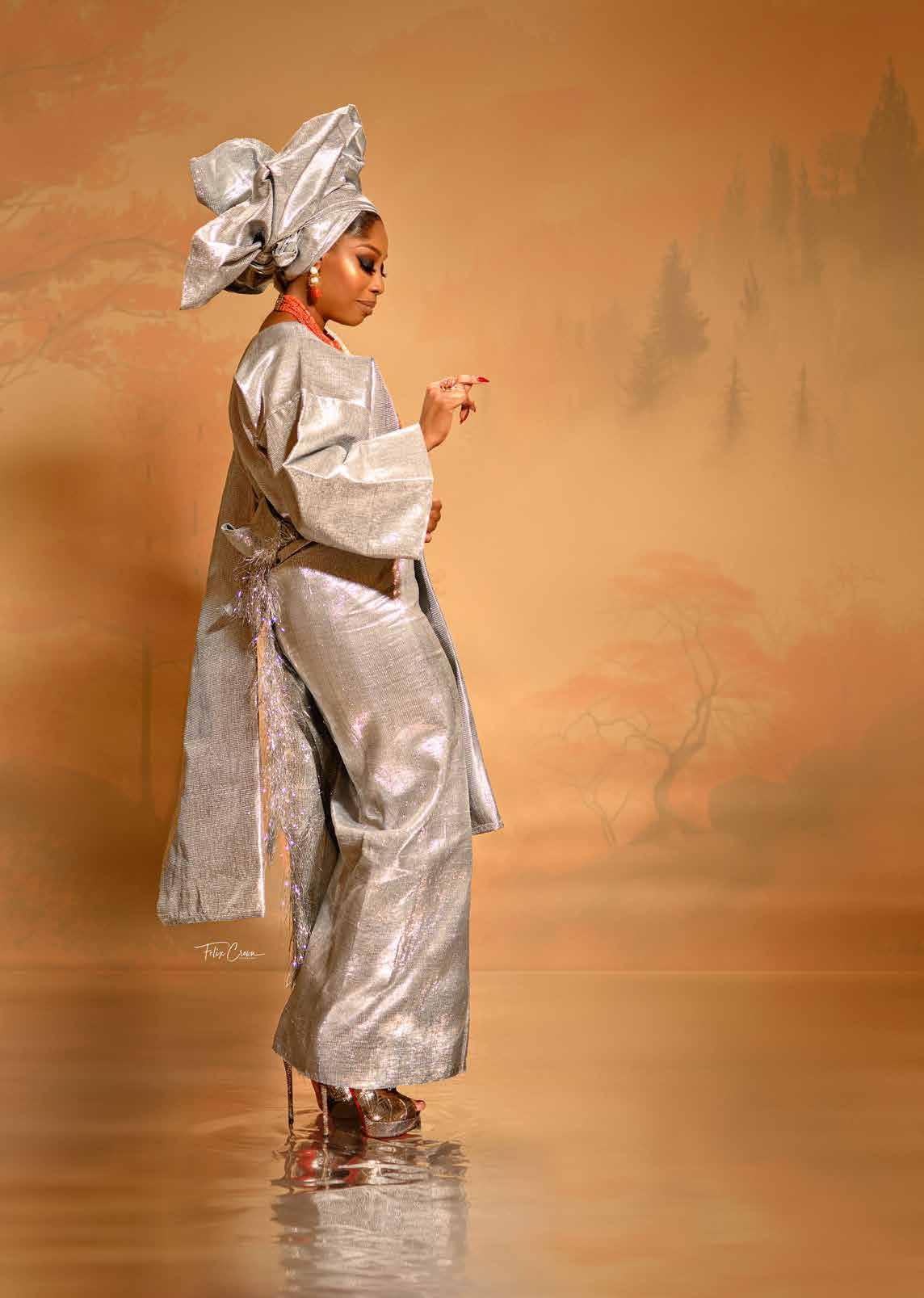
Mo, first of all, a huge congratulations on turning 60! You’ve had such an incredible journey leading up to this milestone. How does it feel when you look back on all you’ve accomplished?
Thank you so much! Turning 60 feels like a moment of reflection and immense gratitude. Looking back, I’m filled with pride for the milestones achieved and the challenges overcome. It’s a beautiful blend of joy for the journey and excitement for what lies ahead.
When you were younger, how did you imagine your career would unfold? Does where you are now match up with those early dreams, or has your journey taken unexpected turns you couldn’t have predicted?
o know Mo Abudu is to know a woman who exemplifies the term “go-getter.” And that’s why it’s no surprise that she’s been hailed by Forbes as one of “Africa’s Most Successful Women.” Over the years, she has carved out her legacy as one of the most influential figures in media and entertainment—not just in Africa but globally. Mo’s journey from a successful corporate career to becoming the visionary leader of EbonyLife Media speaks volumes of her unrelenting ambition and ability to recognise and seize opportunities. As a trailblazer in television and film, she transformed African storytelling, producing some of the most iconic films and TV series that have graced our screens. From Moments with Mo, the talk show that catapulted her into the media spotlight, to launching EbonyLife TV—Africa’s first global black entertainment network—her contributions have been both groundbreaking and deeply influential. She currently stands at the pinnacle of her career, having produced several blockbusters and secured deals with international giants like Netflix and Sony. In this exclusive interview, she reflects on her journey, legacy, and future in the ever-evolving media and entertainment world.
As a young girl, had big dreams, but I could never have imagined my career’s exact path. envisioned success in the corporate world, but the journey into media and storytelling was an unexpected turn. Life guides you to where you’re meant to be, even if it’s not where you initially thought you’d go.
You had a thriving corporate career before making the leap into the media industry. What sparked that decision? Was there a particular moment or experience that pushed you to dive into this new world?

The decision was born out of a desire to tell African stories in a way that hadn’t been done before. There wasn’t a singular moment but a growing realisation that could contribute to shaping how the world sees Africa. The corporate world provided a strong foundation, but my passion for storytelling became impossible to ignore.
Taking such a bold step must have been daunting. Were you ever afraid of failing? What was your mindset when deciding to leap into the unknown?
As a young girl, I had big dreams, but I could never have imagined my career’s exact path. I envisioned success in the corporate world, but the journey into media and storytelling was an unexpected turn
Absolutely, the fear of failure is natural, but I’ve always believed that the bigger the risk, the greater the reward. My mindset was to focus on the possibilities rather than the fear. I trusted that would learn and grow from the experience even if I stumbled.
“Moments with Mo” was a game-changer for African television—just what the industry needed at that time. Where did the inspiration for the show come from? And how do you think it shaped the talk show landscape in Nigeria?
“Moments with Mo” was inspired by a desire to create a platform where African stories could be told authentically. The show was about giving a voice to our experiences, challenges, and triumphs. It set a new standard for talk shows in Nigeria and across the continent, encouraging more localised content and discussions.
Let’s talk about EbonyLife TV. When you first launched it, what vision were you aiming for, and how has that vision grown and evolved over the years?
The vision for EbonyLife TV was to create premium, original content that resonated with African audiences and showcased our stories globally. Over the years, that vision has evolved into a broader mission of being a platform for African creatives to tell their stories in ways that inspire and connect us all.
Telling African stories seems to be at the heart of your work. Why is it so crucial for you to bring these narratives to the global stage through your films and TV projects?
African narratives have been underrepresented and misunderstood for too long. It’s crucial because our stories have the power to change perceptions, challenge stereotypes, and inspire a new generation. Bringing these narratives to the global stage helps to reshape the world’s view of Africa, showing the richness and diversity of our cultures.
The media industry is constantly evolving. How do you keep your content fresh and maintain your relevance in such a fast-paced environment?
Staying relevant requires a deep understanding of our audience and a commitment to innovation. We constantly explore new ideas, embrace emerging technologies, and collaborate with fresh talent. Listening to our audience and adapting to their needs keeps our content engaging and impactful.
As EbonyLife Media continues to grow, what are your plans for its future? How do you envision it evolving in the coming years?
The future of EbonyLife Media is about expansion—both in terms of content and reach. We’re looking to diversify our offerings, collaborate with global partners, and continue telling African stories in new and exciting ways. The goal is to cement our place as a leading media powerhouse on the continent and beyond.
Looking forward, what are your hopes for the next generation of African creatives? How do you see them shaping the future of the industry?
hope the next generation will be bold, innovative, and unapologetically African in their creativity. They have the potential to shape the future of the industry, not just in Africa but globally. I envision them breaking boundaries, challenging norms, and telling stories that resonate universally. Our work at the EbonyLife Creative Academy is pivotal to this.
You’ve achieved so much, but what do you consider your greatest accomplishment, and what makes it stand out for you?
I must qualify this question. My greatest accomplishment in my career has been creating platforms that have amplified African voices. It stands out because it’s about more than just personal success; it’s about leaving a legacy that empowers others to tell their stories.
What does a day in Mo Abudu’s life look like? Please give us a peek into your daily routine.
My days are a blend of meetings, creative brainstorming sessions, and strategic planning. start early, often with some quiet time for reflection or exercise, and then dive into the day’s work. Each day is different but always driven by purpose and passion. Remember, am a grandma now; some days, I am just there for my darling grandsons and am dedicated to family, my children, my mother, sisters, and friends. It is important to prioritise as necessary. I think I multitask exceptionally well, even if say so myself!
People often have misconceptions about public figures. What are some of the biggest myths or misunderstandings about you or your work that you’d like to set straight?
One of the biggest myths is that success comes easily. The truth is, it’s the result of years of hard work, perseverance, and overcoming countless challenges. Another misconception is that media is glamorous; while it has its moments, it’s also incredibly demanding and requires a lot of dedication.


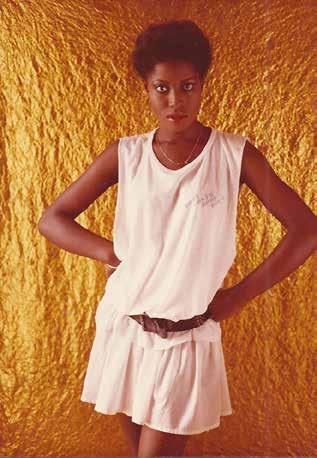
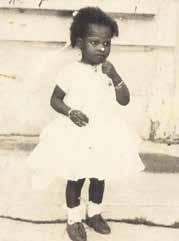
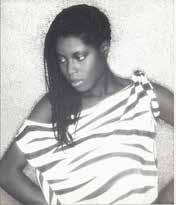
Looking ahead, what’s next for Mo Abudu?
Any exciting new projects or ventures on the horizon?
There are always new projects on the horizon! We’re currently working on several exciting film and television projects that will continue to push the boundaries of African storytelling. I’m also passionate about mentoring the next generation, so expect to see more initiatives focused on nurturing young talent.
Turning 60 is a significant milestone. What does this age represent to you, both personally and professionally?
My greatest accomplishment in my career has been creating platforms that have amplified African voices.
Turning 60 represents a time of wisdom, strength, and a deeper understanding of my purpose. It’s a milestone that signifies what I’ve achieved and what’s still possible. It’s a reminder that there’s always more to explore and more ways to contribute.
Knowing what you know now, what advice would you give your younger self? Is there anything you wish you could go back and tell the Mo of 20 or 30 years ago?
I’d tell my younger self to be fearless and to trust the journey. Every experience, good or bad, is a stepping stone to something greater. I’d also remind her that it’s okay to take risks and that sometimes, the most unexpected paths lead to the most rewarding destinations.
Finally, let’s fast-forward to your 100th birthday. What do you hope people will say about Mo Abudu’s legacy on that day?
I hope that when people reflect on my legacy, they see a trans-

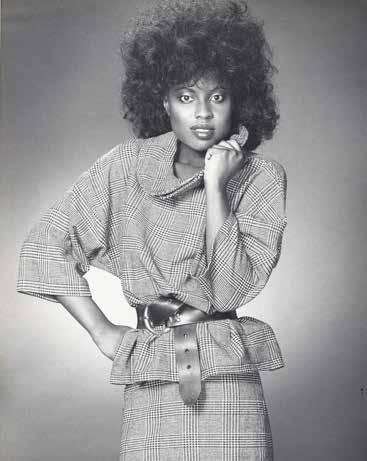
formative impact on African storytelling and a deep commitment to showcasing the richness of our continent’s culture on a global stage. Through my work with EbonyLife Media, I aimed to redefine the narrative surrounding Africa, providing a platform where our stories could be told authentically and with pride. EbonyLife Place, as a luxury entertainment and lifestyle resort in Victoria Island, Lagos, is a key part of that legacy. My vision for EbonyLife Place was to create a space that offers world-class hospitality and entertainment and embodies the spirit of African excellence. With its hotel, diverse range of restaurants, and state-of-the-art cinemas, EbonyLife Place stands as a testament to what is possible when we combine luxury with cultural pride.
Part of my legacy will undoubtedly be the work of the EbonyLife Creative Academy, where we’ve committed to empowering the next generation of filmmakers and actors by offering them the opportunity to attend our courses free of charge. This initiative is about more than just education—it’s about providing a platform for emerging talent to hone their skills, tell their stories, and contribute to the vibrant tapestry of African cinema. By investing in these creatives, we are ensuring that the future of African storytelling is bright, dynamic, and inclusive.
Looking ahead to my 100th birthday, want to be remembered for the success of my ventures and the doors they opened for future generations. My legacy will be one of empowerment, creativity, and an unwavering commitment to elevating African culture on the global stage. I want the EbonyLife Group to stand as a symbol of what can be achieved when we dream big and invest in our own stories and people.
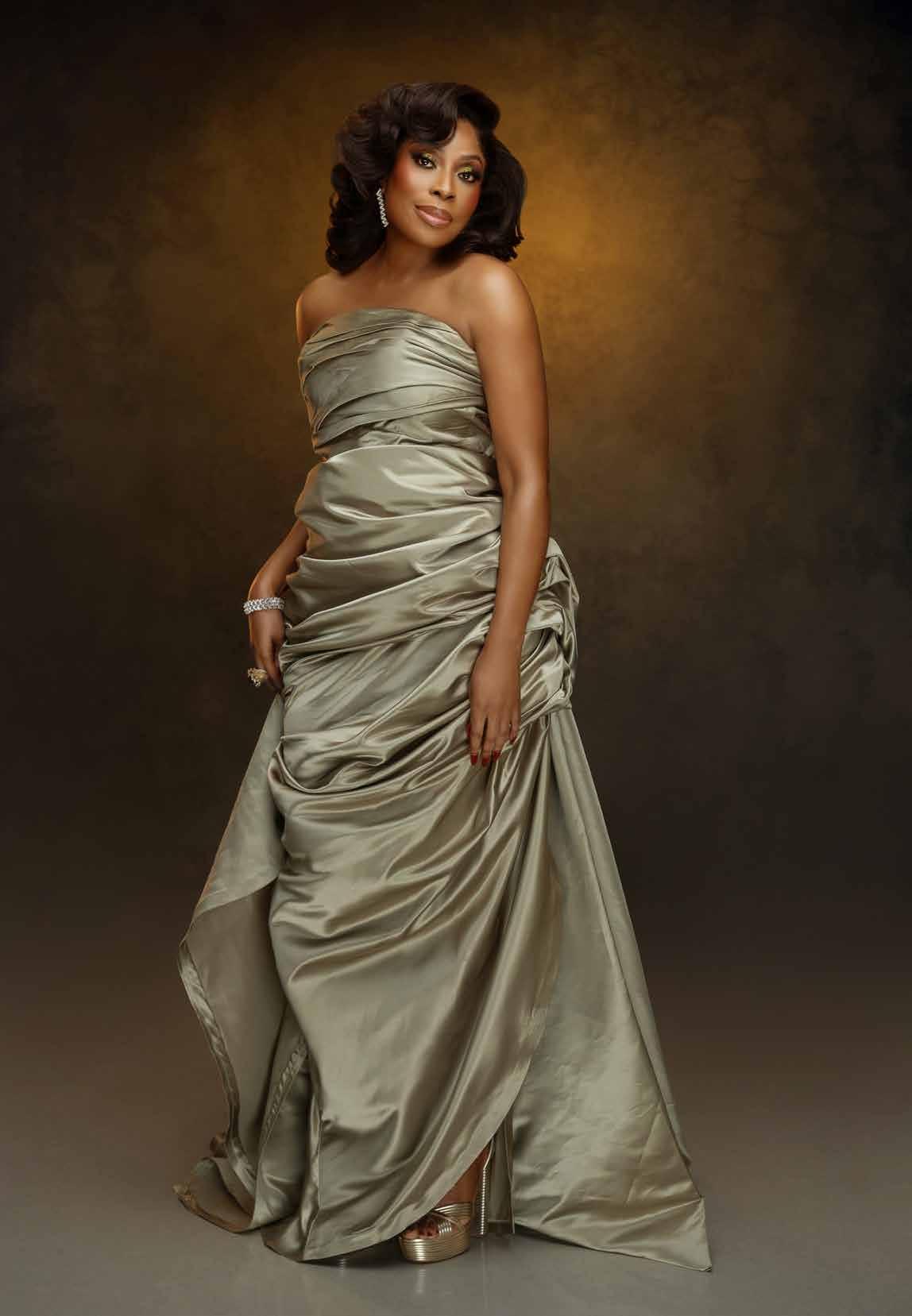
Turning 60 represents a time of wisdom, strength, and a deeper understanding of my purpose. It’s a milestone that signifies what I’ve achieved and what’s still possible
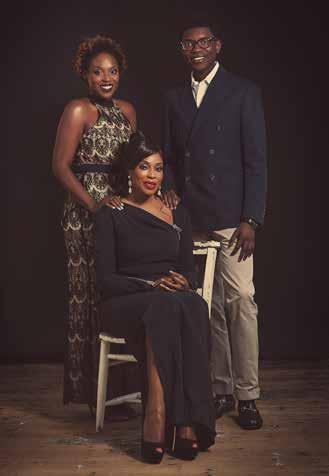
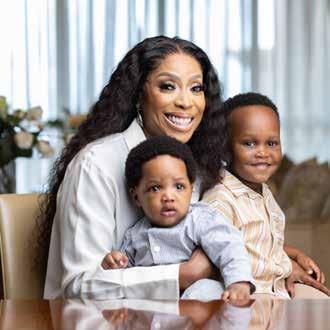
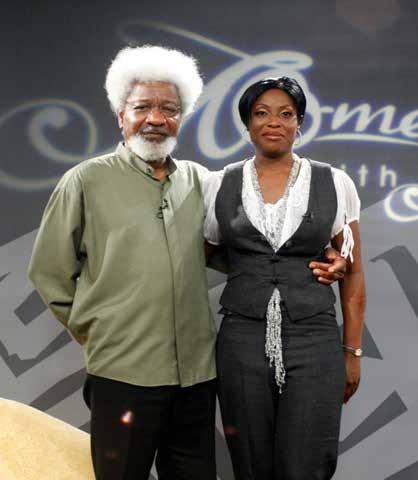
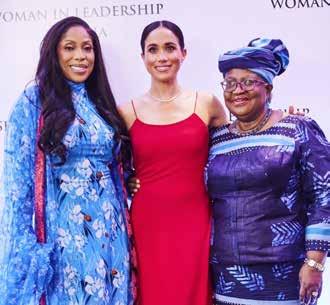


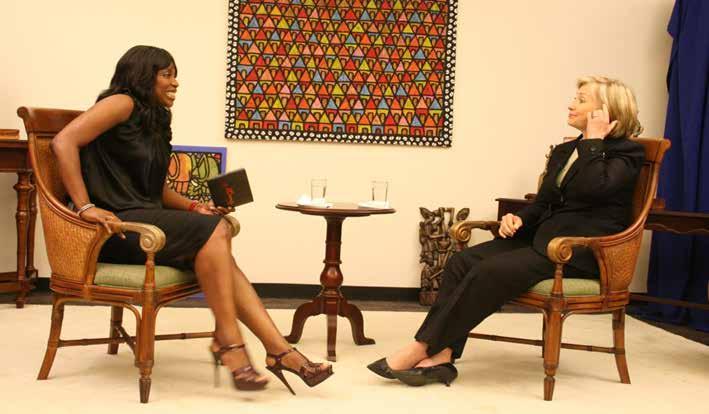



It’s often said that you can tell a lot about a person by the shoes they wear, and honestly, there’s some truth to that. Whether it’s the timeless elegance of a polished brogue, the laid-back comfort of sneakers, or the bold statement of a high heel, our shoes are more than just practical. They reflect our choices, attitudes, and sometimes, even our quirks. So, what do your shoes really say about you?
Sneakers: The Effortlessly Cool Vibe
If sneakers are your go-to, you’re likely someone who values comfort but doesn’t want to sacrifice style. You’re adaptable, always on the move, and you know how to balance life’s craziness with a laid-back attitude. People who prefer sneakers often have a youthful energy, regardless of age. You can go from running errands to meeting friends without breaking a sweat, both literally and figuratively.

Sandals: The Laid-back, Free Spirit
Are you all about sandals? Then you’re the kind of person who enjoys the simpler things in life. You value comfort, freedom, and a relaxed approach to the world. Whether it’s flip-flops or leatherstrapped gladiators, your shoes tell the world you’re easygoing and enjoy the occasional spontaneity. You’re likely someone who doesn’t sweat the small stuff—life is too short to be uncomfortable, right?
People who love sandals often have an open, carefree attitude and prefer









Heels: The Bold and Ambitious Strider Love your stilettos? Then you’re all about making an impression. Whether you’re rocking them to a meeting or strutting through a night out, heels scream confidence and ambition. People who favour high heels tend to have a bit of an assertive streak—they know what they want and are not afraid to go after it. Heels give you height, yes, but more than that, they add an air of elegance. The mere act of putting on a pair gives you that “boss energy.”

Flats: The Practical Optimist
If you gravitate toward flats, you’re about keeping things grounded—literally and figuratively. You prefer practicality without sacrificing style. Flats show that you’re approachable and downto-earth, someone who values ease but still enjoys looking polished. Whether it’s ballet flats, loafers, or slip-ons, your choice reveals a personality that prioritises comfort without foregoing elegance. You’re likely someone who can easily juggle multiple roles—whether you’re running between meetings or catching up with friends at brunch, your flats keep you moving smoothly.





Loafers: The Elegant Minimalist If loafers are your go-to shoe, you’re likely someone who enjoys simplicity but not at the expense of sophistication. You appreciate the finer things in life, but you don’t need to shout about it. Loafer lovers are minimalists at heart, preferring clean lines and understated elegance. People who choose loafers often have a quiet confidence—they’re polished, put-together, and appreciate the ease of slipping on something that looks just as good in a boardroom as it does at brunch. Loafers signal that you’re a steady, reliable person who values both form and function.
Statement
Shoes: The Fearless Trendsetter
If you’re the type of person who loves a bold shoe—a pop of colour, wild prints, or eccentric designs—you’re probably not afraid to take risks in other areas of your life. Statement shoewearers tend to have a strong sense of individuality and creativity. People often see you as confident and imaginative, someone who adds a touch of excitement to every situation. Statement shoes might not be for everyone, but for those who embrace them, these shoes are a form of selfexpression.



By Konye Nwabogor
Fashion is often regarded as an art form, a personal expression of creativity and individuality. But when this creativity meets commerce, questions about ownership, intellectual property, and exclusivity can arise—especially in the world of haute couture. This tension came to a head recently when fashion influencer Hafsah Mohammed took to social media to express her displeasure over a custom wedding dress she had commissioned from renowned Nigerian designer Deola Sagoe, only to see what she claims is an identical version of it worn by another bride.
In a now-viral tweet, Hafsah stated, “What is the point of making a custom dress for your wedding and paying for it to be made custom when the same designer will make the same exact dress for somebody else?” She went on to express her frustration with the lack of exclusivity she had assumed would come with a high price tag: “This whole thing has taught me that it is very important to make clarification and documentation with some Nigerian designers on what you will be getting and if you will be getting exclusivity. If I had known that I wasn’t getting exclusivity, I wouldn’t have paid over $5000 in 2022 for an outfit that would be remade over and over again.”
Hafsah’s comments have sparked a larger conversation about the nature of customised fashion and the rights both clients and designers have when it comes to bespoke designs. At the heart of this issue lies a fundamental question: Can a designer recreate a client’s customised piece for another client, and should they?
The Designer’s Perspective
In response to Hafsah’s public claims, The House of DEOLA, one of Nigeria’s leading fashion brands with over 35 years of experience in the industry, issued an official statement. The prestigious fashion house clarified its stance on custom designs and the concept of intellectual property in fashion, stating, “Deola Sagoe Limited does not offer a Custom Design service where Intellectual Property is capable of being passed on to the client, neither is there a possibility of the existence of such an agreement in the present and more distant future.”
In other words, the fashion house clarified that when clients commission a ‘custom’ dress, they are not purchasing the exclusive intellectual property rights to that design. Instead, the custom offerings involve what they call ‘modified designs,’ where existing designs are altered or customised in terms of colour, fit, or certain features to reflect the client’s preferences. This statement illuminates an important distinction in the world of bespoke fashion—namely, that a customised garment does not necessarily mean an exclusive, one-of-a-kind piece.
At this point it is necessary to point out that the terms “custom” and “exclusive” are often used interchangeably, but they do not always mean the same thing in the fashion world. Customisation can involve creating a piece tailored to a client’s measurements and preferences, but exclusivity implies that the design will not be replicated for anyone else.

Theideaof exclusivity, especiallyina weddingdress, carriessignificant emotionaland financialweight. Aweddingdress isoftenseen asaunique representation ofthebride,her style,andthe specialdayshe envisions.
In other words,the fashionhouse clarifiedthat whenclients commission a ‘custom’ dress,they are not purchasing theexclusive intellectual property rightstothat design.


Without explicitly stating this in a contract, a client could be left disappointed,
From Hafsah Mohammed’s point of view, the situation is more than just a misunderstanding—it’s a breach of trust between a high-profile designer and her clientele. The idea of exclusivity, especially in a wedding dress, carries significant emotional and financial weight. A wedding dress is often seen as a unique representation of the bride, her style, and the special day she envisions. When clients invest thousands of dollars, they expect their dress to remain one-of-a-kind, at least in the way it is presented to the world.
Hafsah’s tweet highlights an expectation that many clients may have: that commissioning a “custom” piece from a designer automatically confers exclusive rights to the design. However, as the fashion industry operates on complex legal and creative frameworks, this isn’t always the case. While exclusivity may be implied in conversations, it is not guaranteed unless explicitly stated in writing.
This incident also raises broader questions about intellectual property (IP) rights within the fashion industry, particularly in a landscape where design replication is common. Unlike fields such as music or literature, where copyrights protect original works, the fashion industry has historically been more lenient when it comes to design ownership. As a result, designers often struggle to protect their creations from being replicated without their consent.
In this context, House of DEOLA’s statement underscores an important point about how intellectual property works in fashion. When a client commissions a custom piece, they may have creative input on the design, but they do not automatically acquire the right to dictate who else can wear a similar version of that dress in the future. As Sagoe’s brand asserts, the original design concept remains the intellectual property of the fashion house, which retains the right to reuse or modify that design for future clients.
However, in a social media-driven world where influencers like Hafsah can amplify their grievances to a global audience, the concept of IP in fashion is being scrutinised more than ever before. Clients expect more transparency and exclusivity, particularly when they are spending large sums on custom pieces, especially for such a once-in-a-lifetime event as a wedding. Designers, on the other hand, must navigate the delicate balance between the desire for innovation and creativity and the commercial realities of producing garments for multiple clients.
At the heart of this debate lies the question of balance: How can designers like Deola Sagoe continue to produce unique, personalised garments for individual clients without compromising their intellectual property?
On the flip side, how can clients feel assured that their investment in a custom piece will remain special, particularly for milestone events like weddings?
One solution may lie in clearer communication and documentation, as Hafsah herself suggested. Designers should be transparent about their policies on custom designs and exclusivity, particularly when working with high-profile clients. In return, clients should actively seek clarification before committing to significant purchases, ensuring they understand what they are paying for— whether it be exclusivity or simply a personal take on a designer’s existing work.
The key takeaway is that in an era when influencers and public figures can significantly shape public perception, designers must navigate expectations with extra caution. Clients should trust that their custom pieces are treated with the utmost care, while designers must safeguard their creative integrity without distancing themselves from their clientele.
By Funke Babs Kufeji
With so many skincare products flooding the market, it’s easy to think that building the perfect routine is straightforward. But guess what? Many common skincare mistakes might be sabotaging your efforts. From picking the wrong products to skipping essential steps, these errors could be the reason your skin isn’t thriving. Let’s set the record straight and get your skin back on track!

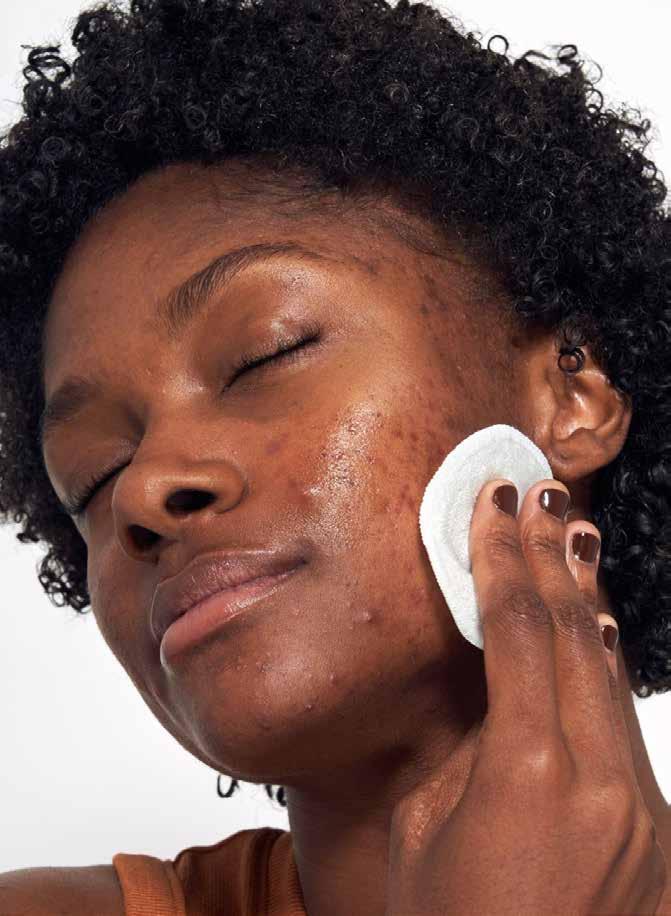
1. Using Products That Aren’t Right for Your Skin Type
The #1 mistake? Not knowing your skin type. If you don’t know whether your skin is oily, dry, combination, sensitive, or prone to breakouts, you’ll never be able to choose the right products. It’s like trying to bake a cake without knowing the ingredients—you’re bound to mess it up! Take time to figure out your skin type because that knowledge is the foundation of an effective skincare routine.
2. Pairing Ingredients Like a Skincare Disaster
Think of your skincare products as ingredients in a recipe—they need to work together! Some products simply don’t play well together. Mixing the wrong ingredients can cancel out their benefits or, worse, cause irritation. Your skin deserves balance, not a battleground. Do a little homework before you mix and match to avoid the skincare equivalent of oil and water.
3. Too Many Products or Layering Them Wrong
4. Inconsistency is the Enemy
Here’s the thing: skin care is a long game. You can’t expect results overnight. If you’re inconsistent—skipping steps, missing days, or changing products too quickly—you’re setting yourself up for disappointment. Skin needs time to respond to treatment. Stick to a consistent morning and night routine, and be patient. Results will come.

Ever heard the saying “Less is more”? It’s gospel in skincare! Overloading your face with products is not only a waste of money but can also cause irritation and breakouts. And even if you’re using all the right products, applying them in the wrong order can make them ineffective. Simplify your routine and follow the correct order—cleanse, tone, treat, moisturise, and protect.
5. Skipping Sunscreen is a Cardinal Sin
You could have the best skincare routine in the world, but if you’re not using Sunscreen, it’s all for nothing. The sun can undo all the hard work you’ve put into your skin. Sunscreen is non-negotiable, even on cloudy days or when you’re indoors. Make it part of your daily routine, and remember to reapply!
6. Forgetting that Diet and Lifestyle Matter
Glowing skin doesn’t just come from the products you use. What you eat and how you live play a big role. No matter how many luxurious treatments you indulge in, if you’re loading up on fast food and sugar, your skin will show it. Hydration is key, so swap the soda for water and eat more skin-loving veggies. And don’t underestimate the impact of stress—take time for yourself to relax. Your skin will thank you.
7. Not Seeking Professional Help
Finally, if nothing works, don’t hesitate to see a dermatologist. They’re the skin experts, and sometimes you need a little professional advice to get things right. Whether you’re struggling with persistent acne or stubborn hyperpigmentation or need product recommendations, a dermatologist can offer solutions tailored to your skin.




Jägermeister, the premium liqueur brand known for celebrating creativity, individuality, and pushing boundaries, is turning heads once again. This time, they’ve welcomed two new powerhouse ambassadors into their fold – Tochi and Hafsat – and trust us, it’s a match made in Meister heaven!
The Jägermeister Meisters Tribe isn’t just any squad; it’s a unique collection of creatives, music artists, and fashion icons, all of whom embody originality, flair, and unapologetic artistry. With the additions of Tochi, Nigeria’s undisputed king of locs, and Hafsat, an award-winning poet who’s a master of spoken word, this crew is shaping up to inspire young people across Nigeria to embrace their passions with authenticity and courage.
Meet the New Meisters
Tochi, the man with magic hands, is officially on board. If you know anything about the hairstyling scene in Nigeria, you’ve probably heard of him – or at least spotted his work on some of your favourite celebrities. As the number one loctician in the country, Tochi’s built his empire by perfecting the art of locs. He’s redefined what it means to master a craft, which is exactly why Jägermeister tapped him for their Meisters Tribe. “I’m beyond excited to join this creative family,” Tochi shared. “Jägermeister’s ethos of embracing creativity and owning your craft speaks directly to me. I’m all about inspiring others to go for their dreams.”
Then there’s Hafsat, a spoken word sensation who’s using her voice to challenge the status quo. Winning multiple awards for her poetic brilliance, Hafsat is a true artist – unafraid, bold, and always authentic. For her, joining the Meisters Tribe is more than just an ambassador role. “I feel incredibly honoured to be part of this movement,” Hafsat said. “Jägermeister celebrates originality, and that’s something I’ve always championed through my work. I’m excited to help empower others to express themselves fearlessly.”
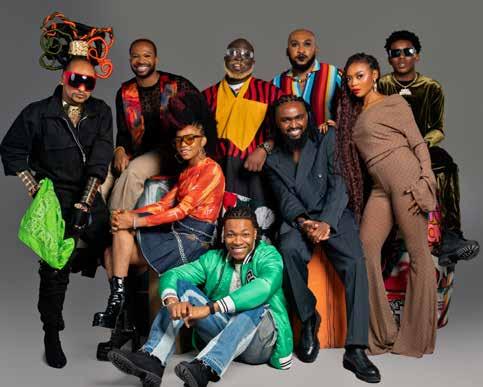
What’s Next for the Meisters Tribe?
Joining forces with the likes of Denrele, Whitemoney, Small Doctor, and DJ Wysei, the new ambassadors will contribute to an ever-growing community of trendsetters who aren’t afraid to break the mould. Whether it’s in fashion, music, or spoken word, the Meisters are all about one thing: being unapologetically you. For Jägermeister, this isn’t just about adding two new faces to their roster. It’s a celebration of craft, creativity, and the freedom to live life on your own terms. So, what are you waiting for? Let your passion guide you, and you, too,




